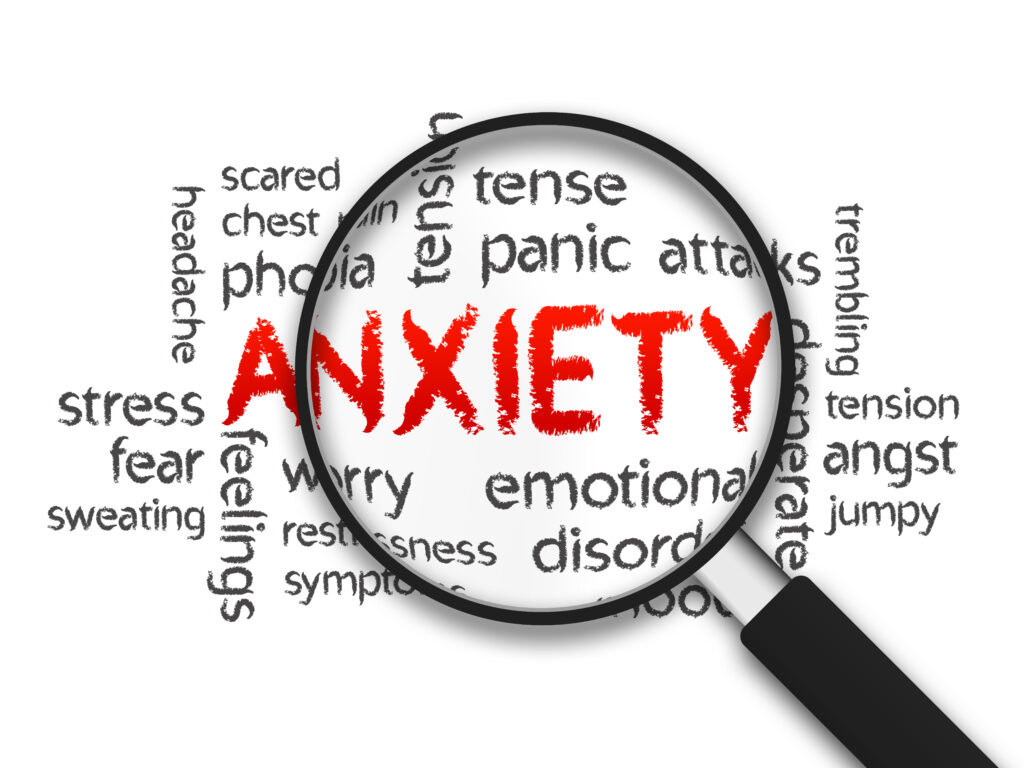Understanding And Addressing Generational Trauma: Signs, Causes, And Healing Strategies

Breaking the Cycle: A Guide to Healing Generational and Intergenerational Trauma
Feeling overwhelmed by unresolved issues and patterns plaguing your life? Generational trauma can manifest in ways you may not even realise. This article explores the signs, causes, and healing strategies to break free from intergenerational trauma.
Read on to reclaim your inner peace.
Key Takeaways
- Generational trauma refers to unresolved psychological wounds passed down through generations, manifesting in various forms, such as anxiety, depression, and unhealthy coping mechanisms.
- Signs and symptoms of generational trauma include emotional dysregulation, relationship difficulties, maladaptive coping mechanisms, chronic physical symptoms, low self-esteem, hypervigilance, dissociation, intergenerational reenactment, disrupted attachment, and impaired cognitive functioning.
- Causes of generational trauma include oppression, cultural dislocation, intergenerational poverty, lack of opportunity, and in-utero exposure to stress or trauma.
- Promising therapeutic approaches for healing generational trauma include EMDR (Eye Movement Desensitisation and Reprocessing), IFS (Internal Family Systems) treatment, CBT (Cognitive Behavioural Therapy), and bodywork therapies.
- Coping mechanisms for generational trauma involve seeking professional help, practising self-care, joining support groups, exploring creative outlets, nurturing healthy relationships, learning about ancestral history, reframing negative thought patterns, adopting relaxation techniques, maintaining a routine, and being patient with the healing process.
What is Generational Trauma?
Generational trauma refers to unresolved pain and emotional wounds. It passes from one generation to the next.
Signs include relationship difficulties, addictions, and mental health struggles. Traumatic events, oppression, and adverse childhood experiences cause it.
Definition and Description
Generational trauma involves unresolved psychological wounds passed down through generations. It encompasses the emotional, mental, and social impacts inherited from ancestors who endured traumatic experiences like oppression, violence, or loss of culture.
This trauma manifests in various forms, including anxiety, depression, and unhealthy coping mechanisms.
Generational trauma roots itself in complex, interconnected factors impacting individuals, families, and communities. It transcends genetics, perpetuating through social interactions, family dynamics, and cultural narratives.
Signs and Symptoms
Identifying the signs and symptoms of generational trauma is crucial for understanding its impact. These indicators can manifest in various ways, shedding light on the deep-rooted effects of unresolved trauma passed down through generations.
- Emotional Dysregulation: Individuals may experience intense, uncontrollable emotions like anxiety, anger, or sadness stemming from unresolved trauma ingrained in their family history.
- Relationship Difficulties: Forming and maintaining healthy relationships can be challenging due to trust issues, emotional detachment, or a tendency to recreate dysfunctional patterns learned from previous generations.
- Maladaptive Coping Mechanisms: Generational trauma may lead to harmful coping strategies such as substance abuse, self-harm, or other addictive behaviours as a means of escape or self-medication.
- Chronic Physical Symptoms: Unexplained physical ailments, chronic pain, or autoimmune disorders can sometimes be linked to the physiological effects of long-term stress and trauma.
- Low Self-Esteem and Self-Worth: Feelings of inadequacy, shame, or a pervasive sense of unworthiness can be rooted in generational trauma, impacting self-perception and personal growth.
- Hypervigilance and Heightened Stress Response: Constant alertness, difficulty relaxing, and exaggerated stress response can stem from the body’s learned survival mechanisms in response to ancestral trauma.
- Dissociation and Depersonalisation: Detachment from reality, feeling disconnected from one’s emotions or body, or experiencing a sense of unreality can be manifestations of generational trauma.
- Intergenerational Reenactment: Unconsciously repeating patterns of abuse, neglect, or dysfunctional behaviours learned from previous generations, perpetuating the cycle of trauma.
- Disrupted Attachment and Bonding: Difficulties in forming secure attachments or bonding with children or loved ones, potentially due to the impact of generational trauma on emotional regulation and trust.
- Impaired Cognitive Functioning: Trauma can impact concentration, memory, and decision-making abilities, potentially leading to academic or professional challenges.
These signs and symptoms highlight the pervasive nature of generational trauma, underscoring the importance of recognising and addressing its effects through healing and support.
Examples and Affected Groups
Signs and symptoms often manifest through intergenerational trauma across diverse communities. Historically oppressed groups – including indigenous populations, descendants of enslaved peoples, and survivors of genocide carry this collective burden.
Children of war veterans or refugees fleeing violence may exhibit signs, too. Socioeconomic factors like poverty can perpetuate cycles of trauma. Additionally, cultural dislocation from colonization disrupts familial bonds, promoting its transmission.
Groups facing systemic racism, discrimination or lack of opportunities remain vulnerable. Offspring of those with adverse childhood experiences frequently display effects. Intergenerational trauma impacts identity, relationships and worldviews across ethnicities and backgrounds.
Transmission Mechanisms
Generational trauma insidiously weaves its way through families and communities – transcending generations. Its malignant tendrils manifest in various forms – narratives passed down, beliefs instilled, and behavioural patterns echoed.
Genetic encoding plays a pivotal role, with research unveiling epigenetic alterations potentially triggered by trauma. Environmental influences compound the burden – societal inequities, systemic oppression, and marginalization perpetuate the cycle.
Breaking this vicious chain demands a multifaceted approach – unravelling the complex interplay of nature and nurture.
Dismantling generational trauma necessitates a holistic strategy. Therapeutic interventions like EMDR, CBT, and IFS offer pathways to healing by reprocessing traumatic memories, reshaping cognitive patterns, and integrating fragmented psyches.
Causes of Generational Trauma
Generational trauma stems from oppression, cultural dislocation, intergenerational poverty, lack of opportunity, and in-utero exposure; its far-reaching effects cannot be overstated.
For a comprehensive understanding, read on.
Oppression
Systemic oppression stifles the fundamental rights of certain groups. It denies opportunities based on race, ethnicity, and generational trauma. Racial discrimination, cultural dislocation, and intergenerational poverty stem from oppressive policies and practices.
They limit access to education, healthcare, and economic mobility – perpetuating cycles of adversity.
Historical subjugation scars communities for generations. Unresolved traumas permeate families, manifesting in mental health issues. Oppression breeds hopelessness, anxiety, and depression across lineages.
Cultural Dislocation
Cultural dislocation refers to losing identity and connection to one’s cultural roots. It often results from oppression, forced migration, or assimilation into a dominant culture.
This severing of cultural ties leads to profound distress, confusion, and trauma for affected communities. Cultural dislocation increases vulnerability to intergenerational trauma transmission.
Families and communities uprooted from their homelands frequently experience a deep sense of loss. Traditional knowledge, practices, and support systems disintegrate, and children grow disconnected from their heritage.
Intergenerational Poverty
Intergenerational poverty entails financial hardship spanning generations – children inheriting socioeconomic disadvantages from their parents. This cyclical pattern perpetuates trauma, limiting access to education, healthcare, and opportunities for upward mobility.
Escaping intergenerational poverty demands addressing systemic barriers and providing comprehensive support systems.
Poverty’s far-reaching tentacles grip families across time – material deprivation coupled with emotional strain takes a toll. Stress, instability, and lack of resources create adverse childhood experiences (ACEs), impacting brain development and mental health.
Lack of Opportunity
Generational trauma often stems from systemic oppression and cultural dislocation. Lack of educational or professional opportunities perpetuates the cycle of poverty, trapping communities in disadvantaged circumstances.
This chronic stress triggers genetic modifications and epigenetic changes, altering gene expression. These biological effects manifest as increased vulnerability to mental health issues across generations.
Marginalised groups experience disproportionate trauma exposure due to societal inequities. Historical injustices leave lasting impacts, compounded by ongoing discrimination and barriers to socioeconomic mobility.
In Utero Exposure
In-utero exposure refers to the phenomenon where a fetus encounters trauma or stress while still in the womb. Research indicates this prenatal experience can have lasting impacts—shaping the child’s susceptibility to mental health issues, including generational trauma.
Stressors like maternal anxiety, depression, or exposure to violence during pregnancy influence fetal development. This imprints emotional and physiological effects, potentially transmitting trauma across generations.
Studies suggest in utero, trauma impacts DNA, altering gene expression and stress responses in the offspring. These biological changes may persist lifelong, increasing vulnerability to conditions like PTSD.
Other Effects
Generational trauma transcends psychological distress. It heightens susceptibility to physical ailments like cardiovascular diseases, diabetes, and autoimmune disorders. Epigenetic alterations influence brain development, hormonal responses, and immune function – exacerbating health risks across lifespans.
Moreover, intergenerational trauma amplifies tendencies for substance abuse, interpersonal conflicts and academic underachievement. Its reverberations disrupt socioeconomic mobility, perpetuating marginalization for affected communities.
Tackling generational trauma demands a multi-pronged approach – psychological interventions complemented by initiatives addressing systemic inequities.

Understanding Intergenerational Trauma
Understanding intergenerational trauma is crucial. It explores how traumatic experiences ripple across generations — impacting future families’ mental health and well-being.
Identifying adverse childhood experiences (ACEs) is key. ACEs often fuel intergenerational trauma transmission — setting the stage for complex challenges passed down the line.
Impact of ACEs (Adverse Childhood Experiences)
ACEs inflict severe, long-lasting harm. They raise risks of mental illness, substance abuse, and chronic diseases. ACEs disrupt brain development, impair coping abilities, and erode trust in relationships – perpetuating cycles of trauma across generations.
Survivors often grapple with anxiety, depression, and post-traumatic stress disorder (PTSD). Proactive intervention and trauma-informed care are crucial for healing and preventing ACE transmission.
Research confirms ACEs have detrimental impacts. Extensive studies link ACEs to higher rates of obesity, diabetes, heart disease, and cancer. ACEs undermine educational attainment and employment prospects, fueling intergenerational poverty and marginalization.
Identifying ACEs
Recognising Adverse Childhood Experiences (ACEs) is crucial. ACEs encompass various forms of abuse, neglect, and household dysfunction.
- Physical abuse – Inflicting bodily harm by kicking, biting, burning, etc.
- Emotional abuse – Persistent belittling, humiliating, or threatening a child.
- Sexual abuse – Any sexual act between an adult and minor or peers where coercion exists.
- Physical neglect – Failure to provide basic needs like food, shelter, and clothing.
- Emotional neglect – Lack of love, support, and affection from caregivers.
- Household dysfunction:
- Witnessing domestic violence against a parent or partner.
- Household substance abuse issues.
- Mentally ill or suicidal household member.
- Parental separation or divorce.
- Incarcerated household member.
Early identification enables timely interventions for healing. Moving on to promising therapeutic approaches…
Promising Therapeutic Approaches for Healing Generational Trauma
Therapeutic approaches open new pathways. They offer hope – a chance to heal generational trauma.
EMDR (Eye Movement Desensitisation and Reprocessing) Treatment
EMDR, or Eye Movement Desensitisation and Reprocessing, is an effective psychotherapy for healing trauma. It involves guided eye movements while recounting traumatic memories — helping the brain reprocess stuck trauma responses.
Research shows that EMDR improves PTSD diagnosis and reduces trauma symptoms like flashbacks, anxiety, and nightmares. This evidence-based therapy offers hope for addressing generational trauma inherited from ancestors.
EMDR facilitates trauma processing in the brain — making difficult memories feel less distressing over time. The National Institute for Health and Care Excellence recognizes EMDR’s efficacy for post-traumatic stress.
IFS (Internal Family Systems) Treatment
IFS (Internal Family Systems) Therapy empowers individuals to access and heal their protective and wounded inner parts. It aims to help people address concerns and achieve healing by understanding how their sub-personalities or “parts” function.
Remarkably, IFS can serve as a powerful tool for addressing generational trauma, allowing the Self to heal, preventing its transmission through generations.
The IFS model improves trauma, anxiety, grief assessment and treatment. It integrates seamlessly with other therapeutic approaches like EMDR. Research highlights IFS’s effectiveness in treating PTSD and associated symptoms, showing promising trauma-healing results.
CBT (Cognitive Behavioural Therapy)
CBT (Cognitive Behavioural Therapy) is a promising therapeutic approach for addressing generational trauma. It uses cognitive behavioural principles and exposure techniques to improve symptoms of PTSD, depression, and anxiety in traumatized individuals.
CBT guides people in overcoming negative emotions towards past adversities — making it invaluable for healing generational trauma. Evidence-based approaches like CBT and EMDR can effectively address such deep-rooted issues.
CBT equips individuals with tools to manage problems by altering thoughts and behaviours. This skill-building process empowers trauma survivors to reframe cognitive distortions and unhealthy coping mechanisms stemming from inherited trauma.
Body Work Therapy
Body Work Therapy employs a holistic, body-oriented approach to trauma healing. It targets the nervous system, aiming to facilitate embodied awareness and release stored traumatic experiences.
Through gentle movement, breath work, and somatic experiences, this therapy helps regulate the autonomic nervous system’s dysregulated patterns caused by trauma. Clients gain insights into their physical sensations, enabling them to process and integrate traumatic memories safely.
Somatic Experiencing, a renowned body-oriented therapeutic modality, treats post-traumatic symptoms. It changes the interoceptive or internal body awareness, allowing clients to progressively engage with their physiological activation patterns.

How to Heal Generational Trauma
Reclaiming your power starts with understanding the trauma cycle — confront the past, embrace self-compassion, and cultivate resilience through mindful practices like meditation or journaling.
Explore holistic therapies that harmonise mind-body-spirit for deep, lasting healing. Unravelling generational wounds is a journey, but you needn’t walk it alone — reach out to our trauma-informed professionals for personalised support.
Coping Mechanisms
Generational trauma leaves a lasting impact. These coping strategies empower individuals:
- Seek professional help: Therapists specialising in trauma, understanding triggers, and processing emotions healthily.
- Practise self-care routinely: Exercise, mindfulness, and journaling relieve stress and improve well-being.
- Join support groups: Sharing experiences fosters connection and validation from others overcoming similar challenges.
- Explore creative outlets: Art, music, and writing channel emotions constructively and provide catharsis.
- Nurture healthy relationships: Surrounding oneself with a compassionate support system is crucial.
- Learn about ancestral history: Understanding roots and cultural identity instils pride and resilience.
- Reframe negative thought patterns: Cognitive restructuring disrupts toxic beliefs, replaces them with self-compassion.
- Adopt relaxation techniques: Deep breathing, meditation, yoga ease anxiety, promote calm.
- Maintain a routine: Structure provides comfort, predictability during unsettling times.
- Be patient with the process: Healing takes time; celebrate small victories along the journey.
Professional Treatment
Therapy often proves pivotal in healing generational trauma—its effects ripple through generations. Seeking professional help acts as the ideal first step, enabling individuals to break free from cycles of trauma.
Psychotherapy provides a safe space for exploring deep-rooted issues, identifying triggers, and developing coping mechanisms. Specialists employ evidence-based approaches like EMDR, IFS, CBT, equipping clients with tools for long-term healing.
Participating in therapy empowers individuals to reclaim their narratives, fostering resilience for a brighter future. The path to overcoming generational trauma lies in therapeutic interventions tailored to each person’s unique experiences.
Challenges and Promising Interventions
Healing generational trauma presents unique challenges – but promising interventions offer hope for breaking the cycle.
Challenges in Addressing Generational Trauma
Confronting generational trauma presents significant hurdles. Intergenerational trauma often remains unacknowledged, leaving deep-rooted issues unaddressed. The societal stigma surrounding mental health exacerbates the challenge, deterring open discussions.
Families may resist exploring traumatic histories due to shame or fear of reopening wounds. Limited access to culturally competent therapists compounds the difficulty in finding appropriate support.
Inadequate funding for trauma-informed care further impedes progress in healing generational cycles of pain.
Furthermore, generational trauma frequently intersects with systemic oppression and marginalization. Dismantling these entrenched systems demands collective action and sustained commitment from institutions and policymakers.
Effective Treatment and Coping Strategies
While addressing generational trauma presents various obstacles, numerous therapeutic interventions and coping mechanisms have proven effective in promoting healing.
- Seeking Professional Help: Consulting mental health experts specialising in trauma and intergenerational issues is crucial. Therapists can guide individuals through evidence-based treatments tailored to their unique experiences and needs.
- Trauma-Focused Cognitive Behavioural Therapy (TF-CBT): This approach combines cognitive restructuring techniques with exposure therapy, enabling individuals to process traumatic memories and develop healthy coping skills.
- Eye Movement Desensitization and Reprocessing (EMDR): EMDR facilitates the adaptive processing of disturbing memories by stimulating information processing through eye movements or other bilateral stimulation.
- Somatic Experiencing Therapy: Focusing on the mind-body connection, this modality helps individuals release trapped physical tensions associated with trauma.
- Mindfulness-Based Interventions: Practices like meditation, yoga, and deep breathing exercises promote self-awareness, emotional regulation, and present-moment focus, countering the effects of trauma.
- Family Systems Therapy: By addressing family dynamics and communication patterns, this approach supports healing within the family unit and breaks intergenerational cycles.
- Support Groups: Joining groups with others who share similar experiences fosters a sense of community, validation, and mutual understanding.
- Creative Arts Therapies: Expressive modalities, such as art, music, or dance/movement therapy, offer alternative outlets for processing emotions and traumatic experiences.
- Self-Care Practices: Engaging in activities that promote relaxation, self-compassion, and overall well-being can be restorative, e.g., journaling, exercise, spending time in nature.
- Psychoeducation: Learning about the impacts of generational trauma and its transmission can foster self-awareness and empower individuals to make informed choices about their healing journeys.
Conclusion
Generational trauma leaves deep scars. Recognising signs empower healing. Holistic approaches offer hope – mind and body therapies reclaim well-being. Break cycles and embrace compassion; trauma needn’t define you.
Families overcome and thrive – start your journey today.
Seeking Help and Further Information
If you need additional guidance or support, reach out to our dedicated specialists. We’re here to assist you on your healing journey.
Explore our extensive resources for further insights into addressing generational trauma. Our team stands ready to provide personalized recommendations.
Contact Us at Yatra Centre for Additional Support
Yatra Centre stands firm in its commitment to providing comprehensive support for navigating generational trauma. Our experienced professionals offer a safe space to explore healing pathways tailored to individual needs.
Reach out, and we’ll guide you through evidence-based strategies, empowering you to break free from intergenerational cycles.
Trauma doesn’t have to be a lifelong burden. At Yatra Centre, we believe in your resilience and capacity for growth. Connect with us today to access our specialised resources, educational materials, and holistic therapies.
Frequently asked questions
How is trauma passed down through generations?
Generational trauma, also known as intergenerational or transgenerational trauma, is a concept where trauma experienced in one generation can affect the health and well-being of descendants. Research shows the transmission of trauma can occur through various mechanisms, including behavioural patterns, psychological predispositions, and even potential genetic markers. This means that the effects of trauma, such as stress disorders or PTSD, can be passed from one generation to another, impacting future generations.
How do I know my generational trauma?
Identifying generational trauma involves recognising patterns of trauma-related behaviours, mental health conditions, or trauma symptoms that recur in your family. This may include a history of adverse childhood experiences, unresolved trauma, or mental health problems that seem to be a legacy of trauma within your family. Understanding your family’s history, including any collective trauma or traumatic events experienced by ancestors, can also provide insights.
What are common examples of intergenerational trauma?
Common examples include the multigenerational legacies of trauma experienced by Holocaust survivors, children of Holocaust survivors, indigenous communities suffering from the effects of colonisation and residential schools, and families affected by slavery or war. These traumatic experiences can lead to a cycle of generational trauma, affecting mental and physical health across multiple generations.
What is the root cause of generational trauma?
The root cause of generational trauma is the original trauma experienced by one generation, such as a traumatic event, historical trauma, or collective trauma, which then impacts subsequent generations. This can be due to the intergenerational transmission of trauma-related stress, behaviours, and mental health conditions, often exacerbated by unresolved trauma and adverse childhood experiences.
Can you stop generational trauma?
Yes, breaking the cycle of generational trauma is possible through awareness, healing from trauma, and addressing the effects of trauma directly. This may involve trauma therapy, mental health treatment, and efforts to resolve the original trauma. Healing generational trauma also requires understanding the transmission of trauma and actively working to prevent the transmission of traumatic stress and mental health problems to future generations.
What is the most common generational trauma?
The most common forms of generational trauma often stem from large-scale historical events or systemic oppression, such as the Holocaust, slavery, war, and colonisation. These events can lead to widespread collective trauma, affecting entire communities or groups of people, and can result in a wide range of mental health issues, including PTSD, across generations.
How do you break a generational cycle?
Breaking a generational cycle involves recognising and addressing the presence of intergenerational trauma, seeking mental health services, and engaging in trauma therapy or mental health treatment. It also involves educating oneself about the effects of trauma, developing healthy coping mechanisms, and creating a supportive environment for healing. Breaking generational trauma is a proactive process of changing trauma patterns and healing from trauma.
How do you get over family trauma?
Getting over family trauma requires a multifaceted approach, including professional support from mental health care providers, trauma therapy, and possibly trauma-focused interventions like PTSD treatment. It’s important to acknowledge and understand the trauma within the family, engage in healing processes, and seek support from communities or groups that have experienced similar trauma. Healing from trauma also involves personal growth, resilience building, and sometimes, confronting and processing the traumatic experiences.
What are the symptoms of family trauma?
Symptoms of family trauma can vary widely but often include psychological trauma symptoms such as anxiety, depression, PTSD symptoms, and complex trauma reactions. There may also be patterns of trauma and poor health, including high rates of mental health conditions, stress and trauma-related physical symptoms, and behavioural issues. Recognising these symptoms as part of a broader pattern of intergenerational trauma can be crucial for seeking appropriate mental health treatment and support.
Subscribe to our newsletter.
Subscribe to our newsletter and join a supportive community dedicated to understanding, overcoming, and transforming personal trauma.
Related Articles
12 Types of Anxiety Disorders
"Anxiety is the dizziness of freedom." - Søren Kierkegaard Anxiety disorders are more than just occasional…...
Dopamine addiction: How worried should you really be?
Dopamine Complex Role in Addiction Dopamine plays a complex and often misunderstood role in substance addiction…...
Exploring The Benefits Of Mindfulness And Body-Based Practices: A Comprehensive Guide
Introduction: Are you looking to improve your mental and physical health but don't know where to…...
Understanding Trauma Bonding: Breaking Unhealthy Bonds
Trauma bonding is a psychological concept that describes the unhealthy attachment between an abuser and their victim. It occurs…...



